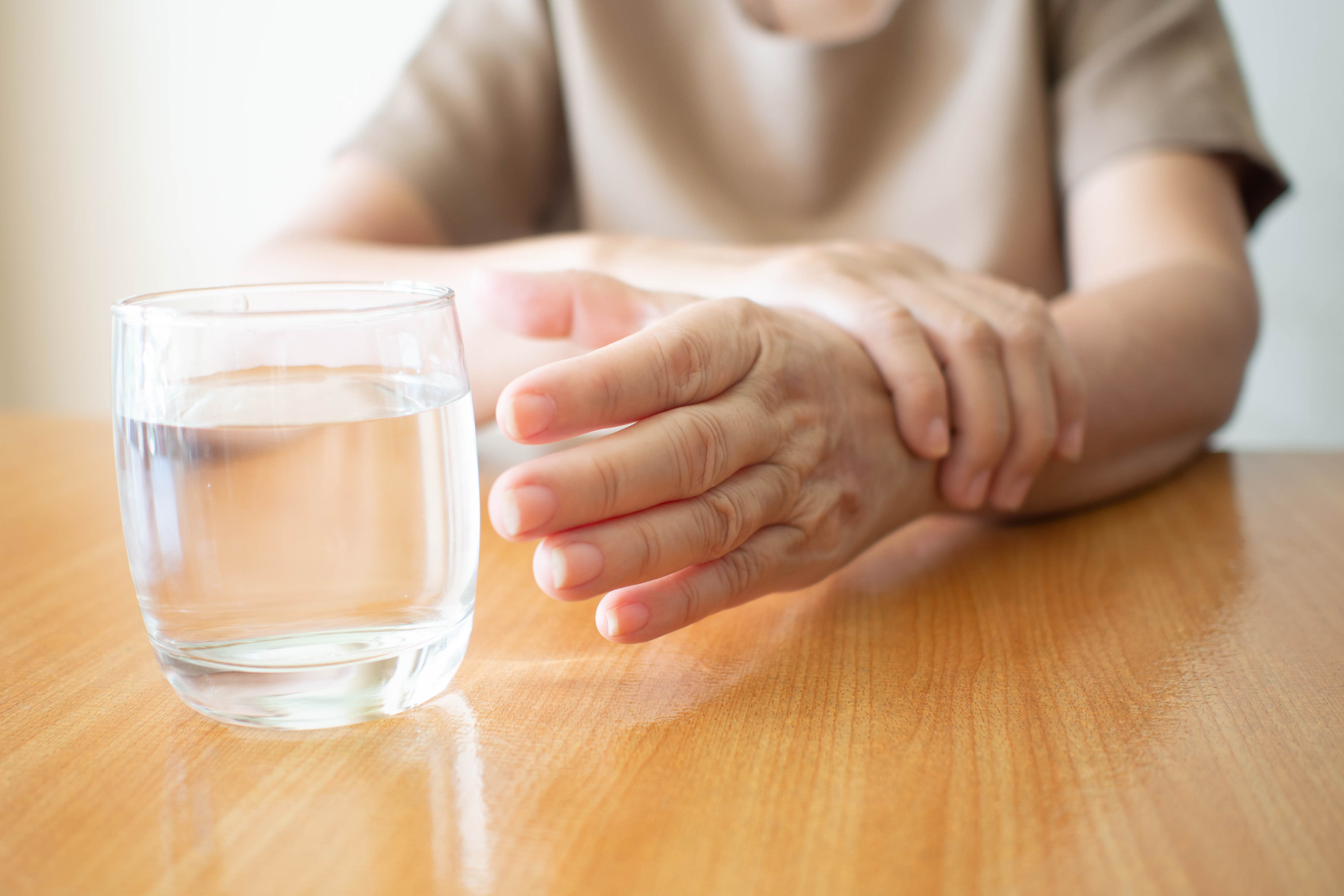Blog

What is Essential Tremor? How is it diagnosed and treated?
If you occasionally have jittery hands after too much caffeine or during a stressful moment, it’s unlikely you suffer from a brain-based abnormality known as Essential Tremor.
But if you have frequent involuntary shaking of both of your hands while holding a newspaper, drinking from a cup or glass or feeding yourself, you may be suffering from Essential Tremor (ET).
This condition, arising from the area deep in the brain that regulates coordination and fine-motor skills, affects some seven million Americans of all ages. ET symptoms can also include tremors of the head or a quivering voice during an activity of these body parts. Both men and women suffer from this condition.
The severity of Essential Tremors increases over time in patients, explains Aaron Lasker, MD, St. Luke’s neurologist and medical director of the network’s Movement Disorders Program.
Diagnosing ET
“Patients are diagnosed with ET starting in their 20s to 40s, and about half have a close relative who also suffers from the condition,” he adds. “As a patients age, their symptoms usually worsen."
The cause of ET isn’t well known. Patients are diagnosed with the disorder by a neurologist, like Dr. Lasker, who has special training and certification in Movement Disorders. Tests, patient interviews and observation are performed in an office setting and don’t require blood tests or brain scans. St. Luke’s Movement Disorders neurologists who also treat ET, Parkinson’s Disease and other movement disorders are Nancy Diaz-Pechar, MD and James Shou, MD.
Treating ET
Medications are often highly effective for controlling the symptoms of ET, though there is no cure for it currently. In some patients, implanted medical pacemaker-like devices can help control the shaking, when medications fail, explains Dr. Lasker. Non-medical treatments can help, too.
“Some patients find that undergoing occupational therapy and using adaptive items, like weighted eating utensils or drinking cups, help compensate for the shaking,” he adds.
Reducing the intake of caffeine, practicing mindfulness stress reduction and treating anxiety can help reduce the severity of these troubling tremors.




